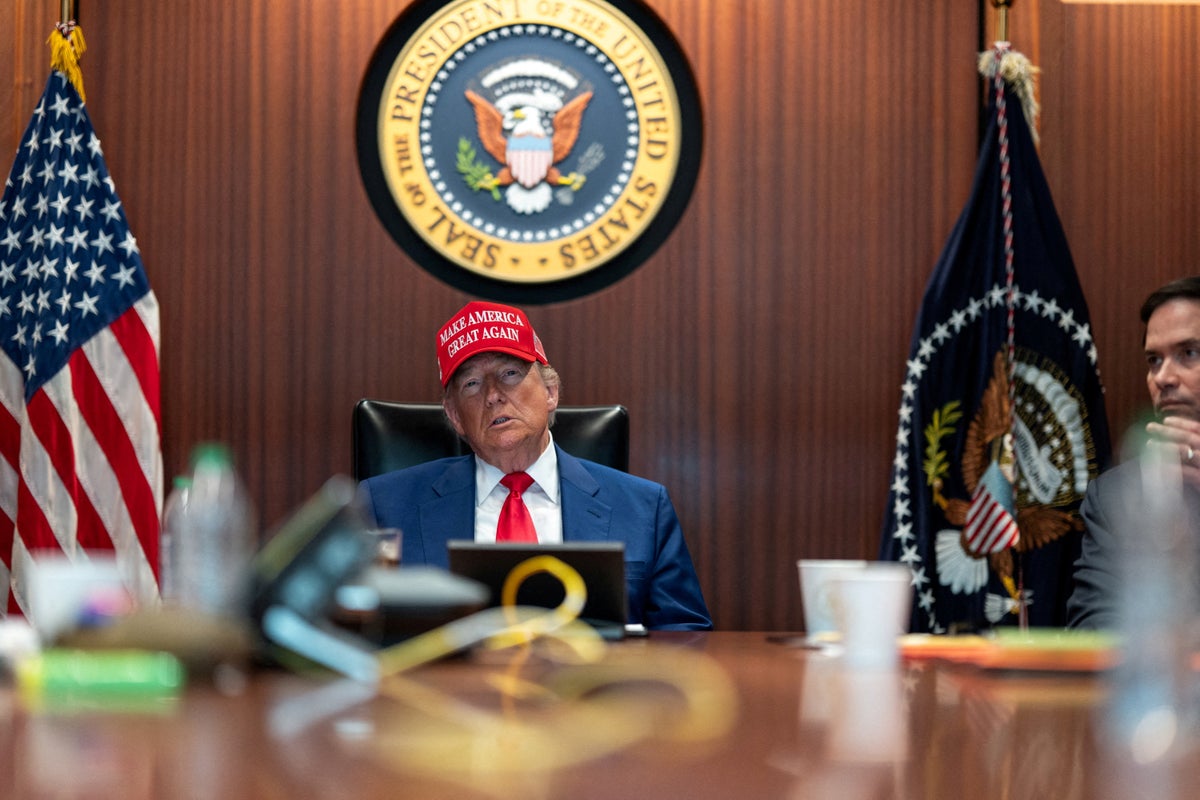U.S. Strikes on Iranian Nuclear Sites: A New Chapter in Middle East Tensions
In a dramatic escalation of military action, President Donald Trump confirmed that the United States has bombed three significant nuclear sites in Iran. This decision, shrouded in speculation and geopolitical tension, follows a week of hostilities between Iran and Israel over Tehran’s burgeoning nuclear capabilities. Trump’s announcement was made through his platform, Truth Social, where he asserted that the attack aimed to bring Iran back to the negotiating table.
The Attack
“We have completed our very successful attack on the three Nuclear sites in Iran, including Fordow, Natanz, and Esfahan," Trump proclaimed, emphasizing the use of long-range bombers to execute the surprise assault. The attack specifically targeted facilities housing uranium enrichment operations critical for Iran’s nuclear program. Notably, Fordow, a fortified site deep underground, plays a crucial role in Iran’s uranium enrichment process with its 2,700 centrifuges.
The strategic implications of this operation are vast. Fordow and Natanz have been focal points in Western concerns regarding Iran’s capability to develop nuclear weapons, while Isfahan houses near-bomb-grade enriched uranium.
Military Details
The strikes utilized B-2 Spirit bombers, which deployed an array of munitions including six 30,000-pound bunker-buster bombs dropped on Fordow. In addition, 30 Tomahawk missiles targeted Natanz and Isfahan. The military operation was meticulously planned, involving airlift operations from a base in Missouri and minimal direct communication with Congress, specifically omitting the so-called "Gang of Eight," a group of high-ranking officials traditionally briefed on such military actions.
Political Reactions
Trump followed up his announcement with a televised address, declaring the nuclear sites “totally obliterated.” He characterized Iran as "the bully of the Middle East" and insisted that the nation must now make peace, suggesting that failure to do so could lead to “greater” future attacks.
Israeli Prime Minister Benjamin Netanyahu lauded the offensive, labeling Trump’s decision a pivotal moment in history. However, within the U.S., lawmakers expressed a mix of support and condemnation. Some Republicans endorsed the strikes as necessary action against a nuclear threat, while others, including Representative Thomas Massie, criticized the attack as unconstitutional, arguing that congressional authorization was necessary for such military actions.
Potential Fallout
The geopolitical fallout could be significant. Iranian officials, including Foreign Affairs Minister Abbas Araghchi, issued stern warnings, labeling U.S. attacks as “very, very dangerous.” Ayatollah Ali Khamenei cautioned that the involvement of the U.S. would lead to “irreparable” harm.
With tens of thousands of U.S. troops scattered across various military bases in the Middle East, analysts predict possible retaliatory strikes targeting American forces. The recent conflict flares between Iran and Israel have already seen casualties mount, with reports indicating that over 657 individuals have died and 2,037 others wounded in Iran alone due to the escalating hostilities.
Trump’s Justification
The timing of the strikes connects directly to Trump’s assertion that Iran could develop a functional nuclear weapon "within a matter of weeks," a claim that stands in stark contrast to the testimonies of intelligence officials like National Intelligence Director Tulsi Gabbard, who affirmed that Tehran was not currently pursuing a nuclear weapon. Trump’s insistence on a proactive military response highlights a broader shift in U.S. foreign policy, potentially paving the way for a more aggressive stance against perceived threats.
Legislative Responses
Reactions among U.S. legislators have diverged sharply. Senate Majority Leader John Thune and House Speaker Mike Johnson expressed their unwavering support for Trump’s decisive action, framing it as a commitment to preventing a nuclear-armed Iran. In contrast, some Democrats and cautious Republicans have raised alarms regarding the implications of unchecked military action, with calls for Congress to assert its authority over matters of war.
Representative Alexandria Ocasio-Cortez went further, labeling the strikes as grounds for impeachment, arguing that they breached the Constitution and ineffective Congressional War Powers.
The Broader Implications
The situation remains fluid, with deepening divisions within U.S. political circles, rising tensions in the Middle East, and an uncertain future regarding Iran’s nuclear ambitions. The international community watches closely as the stakes escalate, with concerns growing over the potential for more extensive military engagements that could ensnare the U.S. in a prolonged conflict.
As the dust settles from this significant military action, the implications for U.S. foreign policy, regional stability, and international diplomatic relations continue to unfold.


